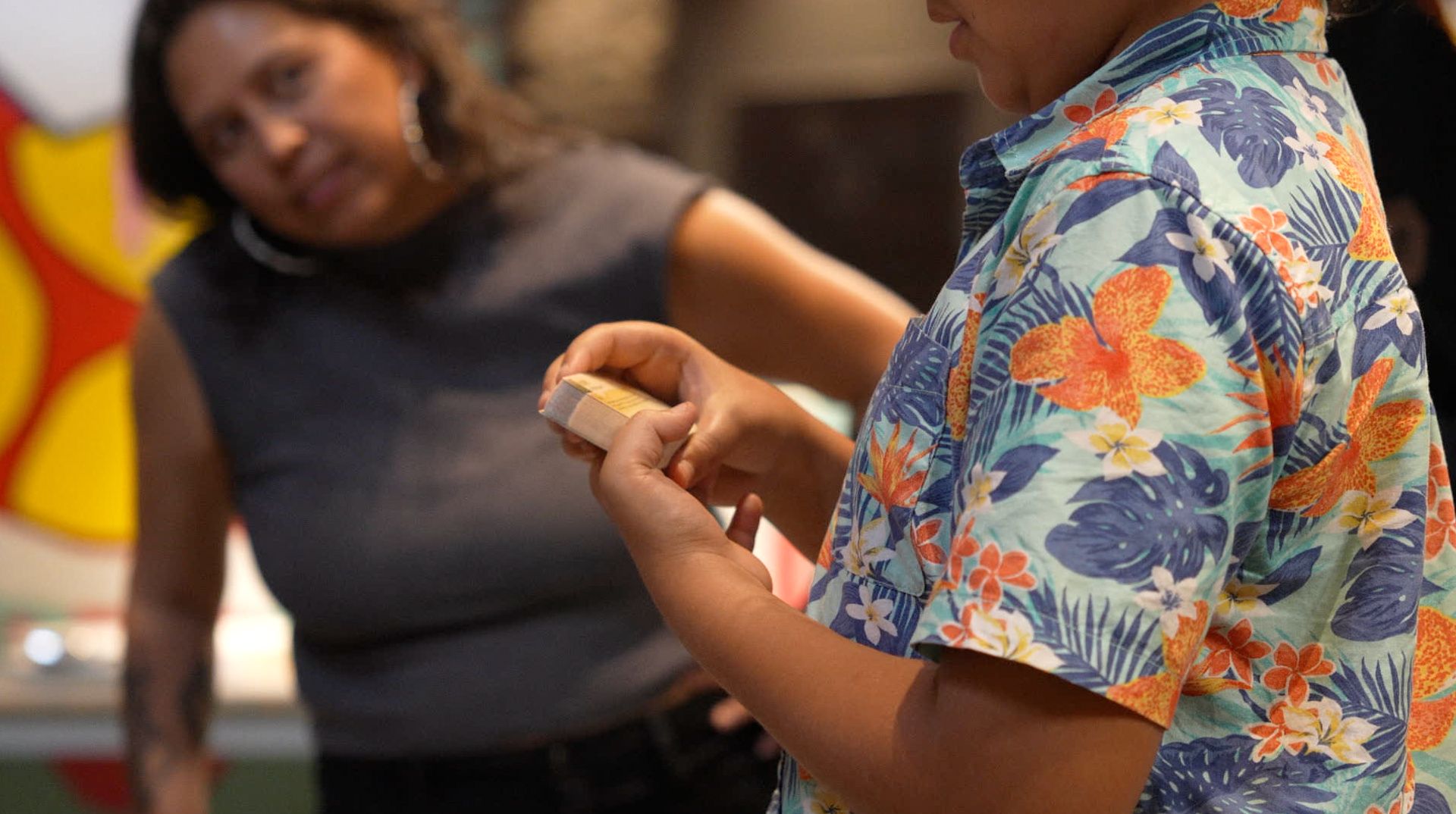A few weeks before the start of school, the Quebec Ministry of Education (MEQ) announced budget cuts affecting francization programs for adults. These measures raise concerns for the integration of immigrants, who are once again seeing their French education being compromised. Report.
The Quebec government offers free French courses to residents aged 16 and over. These courses aim to facilitate the integration of immigrants by providing them with language skills. However, a recent change in financial aid is instilling some concern among these beneficiaries. Several classes have been abolished or reduced, despite increasing demand. The coup de grace came on September 23, with the suspension of daily allowances of $28 for part-time students. In contrast, the compensation of $230 per week for full-time courses has been maintained. In addition, employees of businesses with 100 or more employees no longer benefit from the allowance for francization in the workplace.
“The government does not think about the real lives of students”
These changes are affecting thousands of people. This is the case of Sandra* and Pryia*, two women who are now at an impasse. We meet them in the offices of a community organization that offers francization courses funded by the MIFI.
Sandra, short in stature, has her hair tied at the back, which makes her look solemn. A Colombian immigrant, she arrived alone in Montreal in September 2023. I meet her on her way out of class, in an office of the organization. Sandra looks at the empty tables and confides : “I chose Canada for its safety, and more specifically Quebec because I wanted to learn French. I had started classes with a teacher in Colombia, but once here, it was something else: the accent, the expressions...” says the 30-year-old, laughing.
As soon as she arrived, Sandra sought to enroll in francization courses. But the system being saturated, it was almost a year later, last August, that a place became available in an organization, but within an hour and forty-five minutes from her home. “When I arrived, I was living in Lachine; so I applied there. But I never got a response. I had time to move twice, to Pie-IX, then to Jean-Talon, before being called to tell me that there was finally a place. For weeks, I went back and forth every day... I was determined.” Finally, she was transferred to a centre closer to home — a relief, she tells us.
“In Colombia, I studied literature, I was a Spanish teacher and a writer. But here, as long as I don't speak French well, I'm doomed to low-paid odd jobs,” she confides, referring to the jobs she had to do as a cleaning lady or hostess. “My savings were melting, so, honestly, starting French classes also relieved me financially, because I was receiving the benefits. I thought it would make my life a little bit easier.”
Then came the announcement of budget cuts, which turned everything upside down. For Sandra, it's a major blow: “I don't do my shopping in the supermarket, I don't have the resources. I'm going to the food bank. These allowances help me pay for my room and my Opus card at $100 per month. I don't even know how I'm going to renew it next month,” she said, her voice trembling. "For now, I am going by bike, but with winter approaching, that will no longer be possible...”
And, with a touch of irony, she adds: “To have the opportunity to learn French for free is incredible, but when I think of these parents who have to find a way to feed their children as well... I don't have children unfortunately, but at the same time, thank God, I am not a mother! ”
A few meters away, outside the classroom, Pryia, another student, shares this feeling of powerlessness. Mother of three children aged nine, five and two, of Indian origin, Pryia is distinguished by her easy smile. With her glasses placed on her head, her floral but simple top, and her orange lipstick, she suggests a personality that is both lively and serious. Her eyes come alive as she recounts her arrival in Canada three years ago as an asylum seeker. After getting her citizenship, she started francization courses. “These benefits helped me to be a bit independent of my husband. I am here every day for a total of 20 hours of class per week. Even though I didn't work, I had the satisfaction of having my own money,” she says.
A former administrator in India, Pryia already speaks four languages and is determined to master French. She laughs as she recalls her beginnings: “When I first came here, I didn't even know the French alphabet! Now I want to keep learning to help my children. They already speak French fluently, but I still have to persevere.”
However, for her, the possibility of switching to full-time courses to benefit from the $230 per week compensation does not seem realistic. Pryia is adamant: “With three children, it's impossible for me. Part-time was a great compromise. I will continue to learn the language, especially for my children. But I know that a lot of women in my situation will abandon French courses to go to work... it's a shame! ” she let it go.
Sandra is also caught in the crossfire. In November, she will begin full-time digital marketing studies at an English-speaking college. The young woman hoped to continue to benefit from the $28 per day compensation to be able to combine marketing studies and French lessons. “I am creative, I know that I can do a lot of things, but it's a question of survival. Of course, I want to continue learning French, but I need to work to live with dignity,” she says, aware of the need to focus on her college studies and to find a job.
Despite the challenges, the two women did not lose hope. However, one thing is clear to them: the reality of French students sometimes seems far removed from the decisions taken by the government. “[It] does not think about the real life of students”, concludes Sandra with a hint of disillusionment in her voice.
Destabilized professors and students
In recent weeks, several School Service Centres (CSS) have been forced to significantly reduce their course offerings as a result of budget cuts by the Quebec Ministry of Education (MEQ).
Two weeks after school started, Lisa*, a francization professor at the Montreal English School Services Centre, saw her class disappear. “Classes started on August 26, the students had already organized their whole lives according to their schedule and the fact that they would be paid. Everything was turned upside down in a few days,” she laments. It would have been more “respectful," she thinks, to let the students finish the year. “Allowing them to finish until 2024 would have given them time to adapt, rather than to change everything just after school! ” she said with a touch of annoyance.
Some students have been redirected to part-time classes with other schedules, and the majority to full-time courses, which are still eligible for stipends. “Many have gone to full-time, but you have to understand that the initial choice of part-time was not trivial,” she says.
Camille Caron Belzil, also a professor of francization, still can't believe it: “I was very surprised, really very surprised. Maybe I'm a bit in the clouds.” For her, these cuts are part of a context where critical discourse against immigrants is growing. “We hear more and more that immigrants are partly responsible for housing problems, as if they were the cause of all ills... But I didn't think it would lead to cuts in francization,” she regrets.
This “xenophobic” rhetoric,” according to Camille, seems to justify the reduction of French classes, as if these workers were perceived as a financial burden. “We get the impression that they are costing us a lot. If Quebec really valued immigrants, such decisions would not be taken,” she concludes, visibly dismayed.
“Beyond economic calculations, a humanitarian emergency”
From 2019 to 2024, the funding allocated to school service centers for the francization of adults increased from $69 million to $104 million. A sum that does not impress the professor, who is more concerned about the human repercussions. “These services meet real needs. Beyond simple economic calculations, francization courses also have a humanitarian dimension,” replies Camille Caron Belzil.
She recalls that many students are asylum seekers fleeing oppressive regimes and seeking to rebuild their lives. For her, it is the government's responsibility to ensure access to these courses. “Without this training, they find themselves trapped in underpaid and under-qualified jobs, with no opportunity to improve their situation. Maybe that's part of the government's calculation...”
The elimination of the $28 daily stipends for part-time students only makes this situation worse. “They are anxious, torn between the urgency of earning money to support their families and the need to learn French to be able to hope for a better future,” she explains. Without this financial assistance, many have no choice but to focus on work, even if this jeopardizes their integration.
During an interview with On September 13, the Minister of the French Language, Jean-François Roberge, declared: “Instead of using money from Francisation Québec to give allowances, we are going to invest directly in francization courses. In this way, we will be able to fulfill our mandate more effectively by francizing a greater number of people.” According to the minister, the allowances were intended to encourage newcomers to enroll in French language courses. However, following the explosion of registrations last spring, this aid was deemed superfluous by the CAQ government. Again according to the figures obtained by Le Devoir, in April and May in Quebec, the number of adults enrolled in francization courses reached 26,656, compared to 34,060 for the whole of 2023-2024.
"We live here too!"
Back at the organization, Sandra, with her hands clasped, still has her eyes fixed on the empty tables. Like Camille, she sees these measures as a relentlessness against those who have chosen Quebec to build a new life. “I did not come here illegally. I got a study permit, I respected all the rules. It was difficult, but going back to my country was not an option. So, I followed the government's rules to stay here,” she insists, outraged.
Although aware of national priorities, Sandra laments the stigma she feels she is a victim of: “I understand that Canada must think of its citizens first, but we are educated professionals. We have a lot to give to this society. Now a new barrier is being put on us. We live here too! Our desire is not to stay home while waiting for benefits. Those who benefit from this assistance, such as refugees, are also looking for opportunities to better integrate.”
She paused, then added, in a more bitter tone: “What they are doing now is an act of ill will towards us. I can understand if they do not want to help those who have not yet arrived in the territory, but for those who are already here, working and trying to be useful to this society, it is simply not fair to impose these conditions on us. The message we get is that they don't want us to be a real part of this society! ” exclaims the francization student.
At the time of writing, MIFI had not answered the questions sent to them by La Converse.
While budget cuts are significantly hampering the integration of immigrants, francization professor Lisa points out that these cuts also compromise the future prospects of students in Quebec. “Many of them must obtain their francization certificate to access the Certificat de Sélection du Québec (CSQ), a key element in obtaining permanent residence,” she says.
This is a situation that La Converse will continue to follow closely, because beyond budget cuts in francization programs, human lives are directly affected.
*The real names of Sandra, Pryia and Lisa have been changed at their request.








%20(1).jpg)
.jpg)
.jpg)